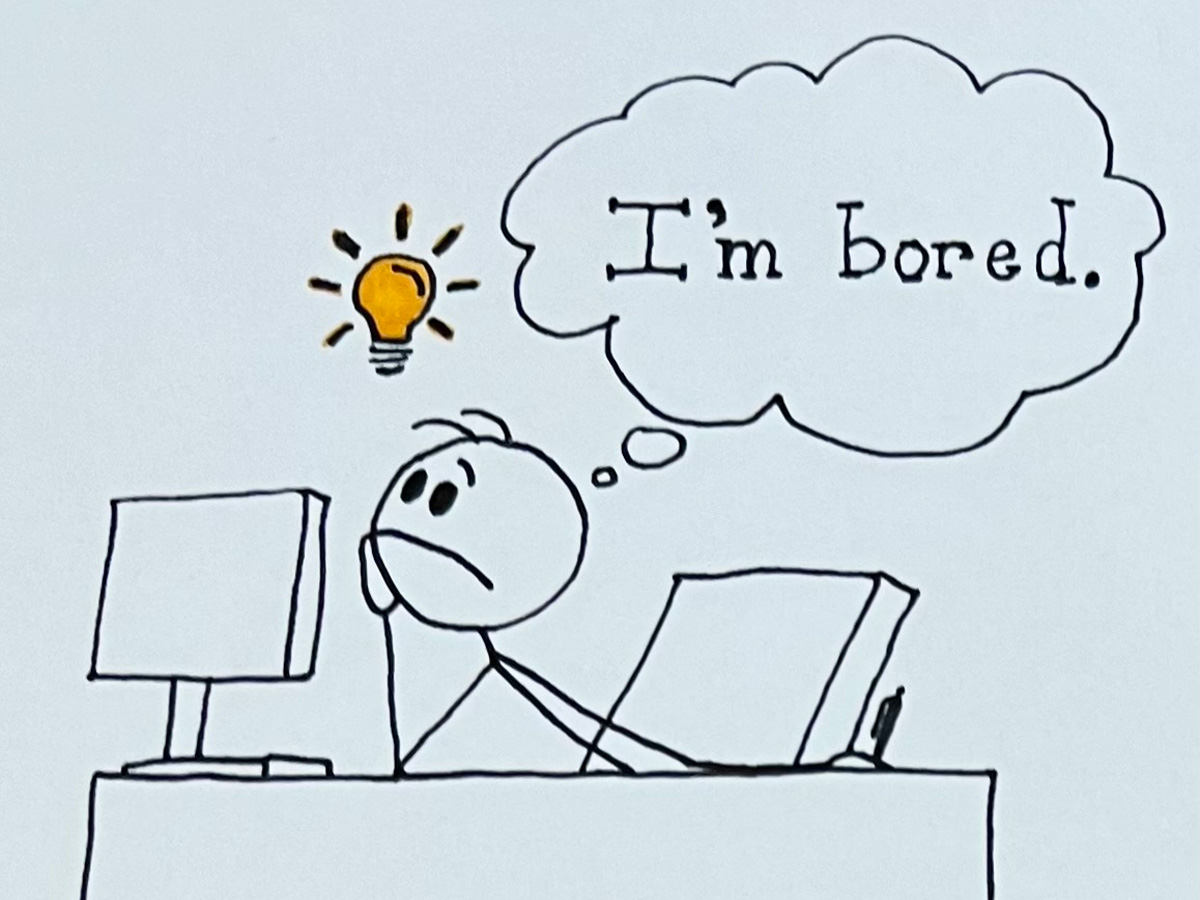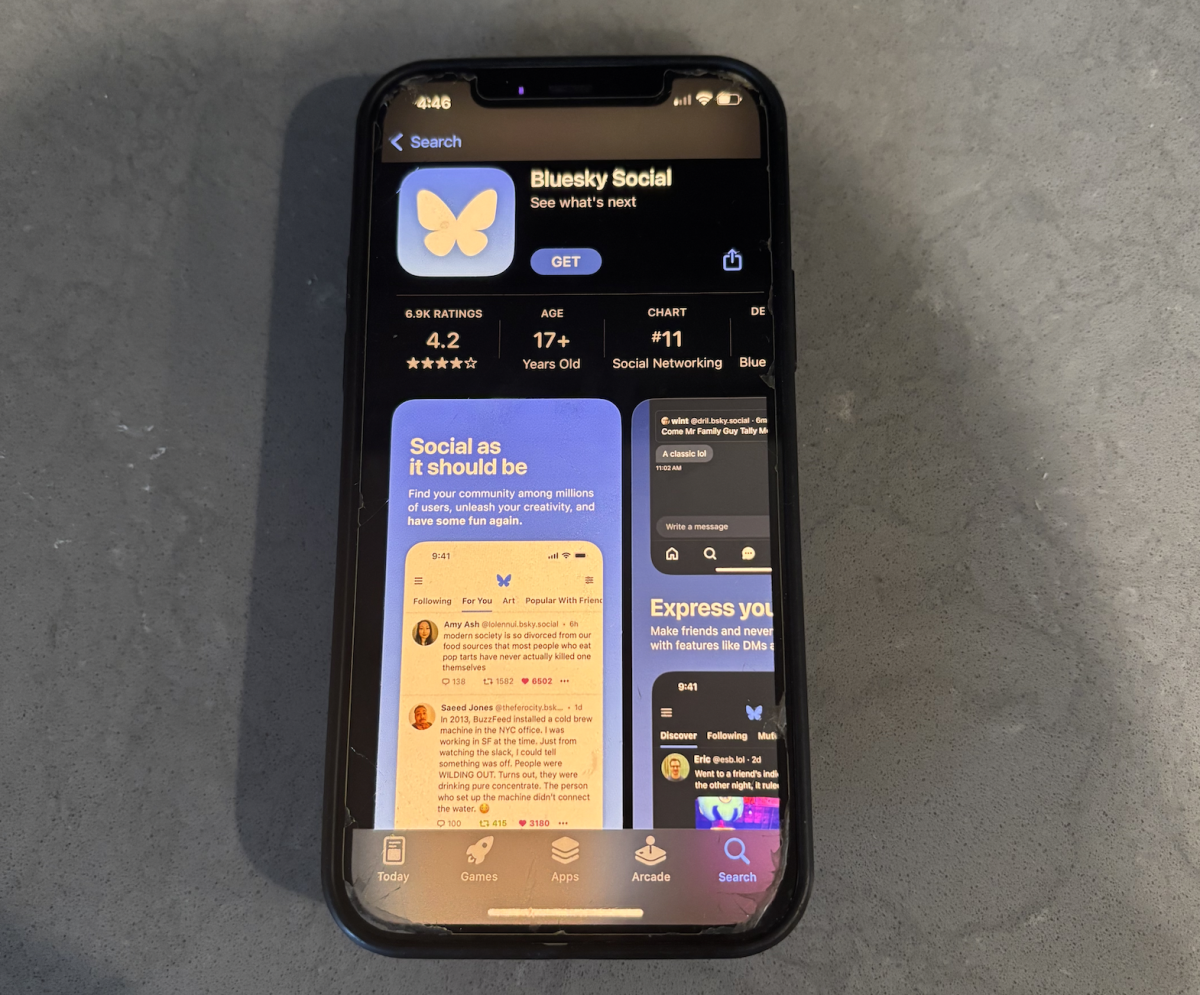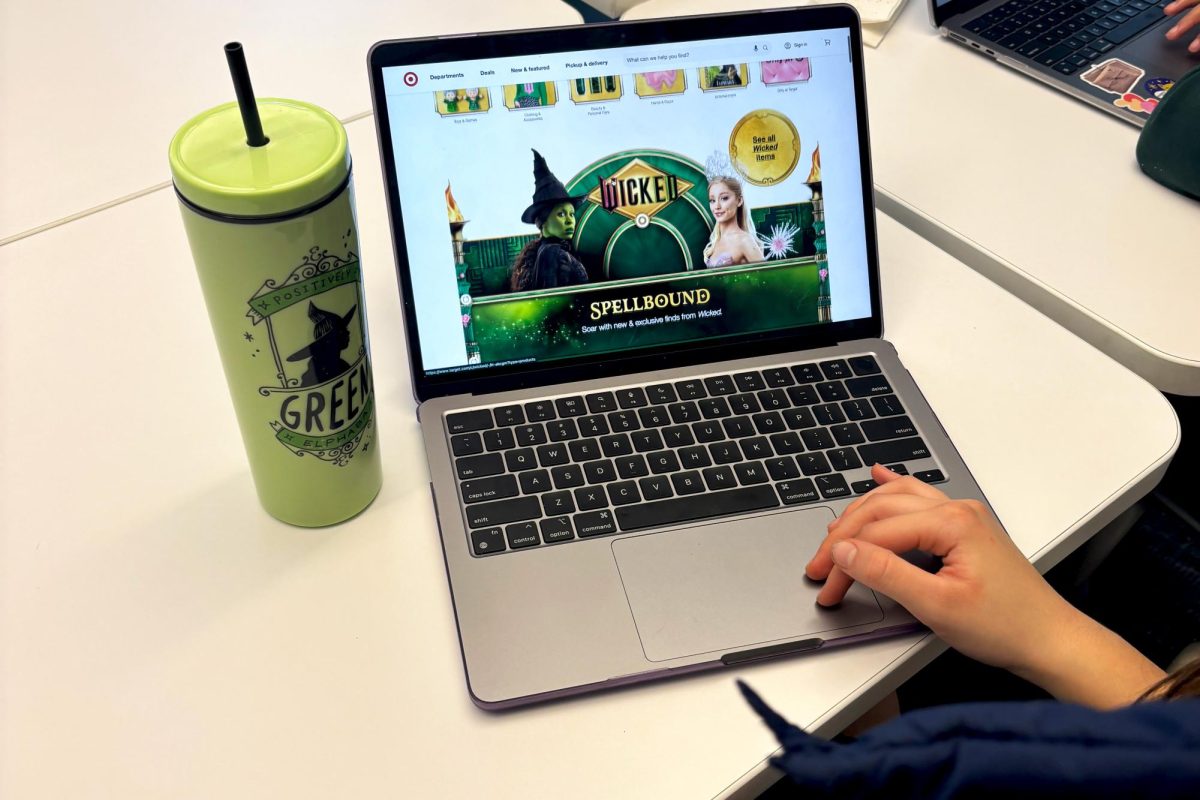In the midst of a crowded restaurant, a young child sits at the dinner table with his family. The restaurant’s beautiful ceiling lamps coat the guests in warm yellow light, and the lively atmosphere is filled with the sound of voices and the clatter of utensils.
But as others enjoy their dinner, the young child slouches in front of an iPad propped up by a clunky blue case. The child’s parents had given him the iPad after hearing his repeated complaint: “But I’m booooored.”
Have you ever seen an iPad kid in the wild?
The term “iPad kids,” popularized by TikTok users in 2021, describes screen-addicted kids (typically from Generation Alpha) whose constant need for technological stimulation leaves them with poor interpersonal skills and a low attention span.
At times, I, too, feel like an iPad kid. Whenever I feel bored or apathetic, I find myself reaching for my phone with no real purpose and finding an app to keep myself occupied. After a while, I may even feel bored as I eat lunch or dinner.
For so long, I viewed boredom as something negative — a wasteful feeling in my day. The time I could’ve spent having fun. Even a sign that my life was too boring.
I have now begun to believe in its power.
Today’s society convinces people to see boredom as unproductive and lazy. Between the “go-go-go” workaholic mentality that seeped its way into the American psyche and the abundance of distractions in all areas, we have failed to understand the importance of boredom to our minds. Actually, I feel boredom’s value increases the longer we live in a modern society where everything competes for our time and attention.
So, what are the benefits of feeling bored?
Firstly, a certain level of boredom can elevate our creativity. According to a Harvard Business Review article by David Burkus, an organizational psychologist and best-selling author, boredom provides us with an opportunity for reflection. He specifically cites a 2018 study where people forced to do boring tasks came up with more creative ways of thinking, as these tedious activities had allowed their minds to roam. As a Psychology Today article puts it, the “absence of external stimulation” motivates us to “use our imagination and think in different ways.”
In moderation, boredom also has positive effects on our mental health. Stepping away from the constant stream of information and entertainment gives our minds a special opportunity to decompress and conserve attention. Embracing boredom allows us to self-reflect, which can be quite beneficial to our mental well-being, as it promotes emotional regulation and inspires personal growth.
Not only can boredom enhance our creativity and boost our mental health, but it can also (ironically!) make us less fundamentally bored in the future. As described by Abigail Fagan, the author of a Psychology Today article on boredom, people hope to escape from boredom by seeking temporary solutions of distraction. However, Fagan affirms that, “these short-term solutions only serve to strengthen the grip of boredom.”
In other words, using fast remedies to subdue boredom often becomes similar to an addiction, where we need more and more external entertainment to combat the boredom we feel — this ultimately leads to experiencing more, and possibly deeper, boredom later in our lives.
I agree. When we use outside sources of stimulation — such as screens in the case of iPad Kids — the tracks of thinking are created for us. But without that external stimulus, we can use our creativity and imagination to come up with our own train of thought. Some of the greatest ideas and inventions have come from this feeling. For instance, Albert Einstein spent “a year loafing aimlessly” during which he planted the seeds of his many great ideas that changed society’s understanding of gravity, space and time.
Ultimately, I believe that embracing boredom strengthens our minds and combats a deeper sense of chronic boredom that plagues many people in our current society.
The next time you feel bored and want to circumvent this “negative” emotion, I urge you to put aside the distractions and let your mind wander. Try getting lost in your thoughts, even daydreaming. When you feel like reaching for your phone, especially when you are with other people and don’t have things to talk about, embrace the silence or begin a conversation.
And, most importantly, don’t be an iPad kid.
















